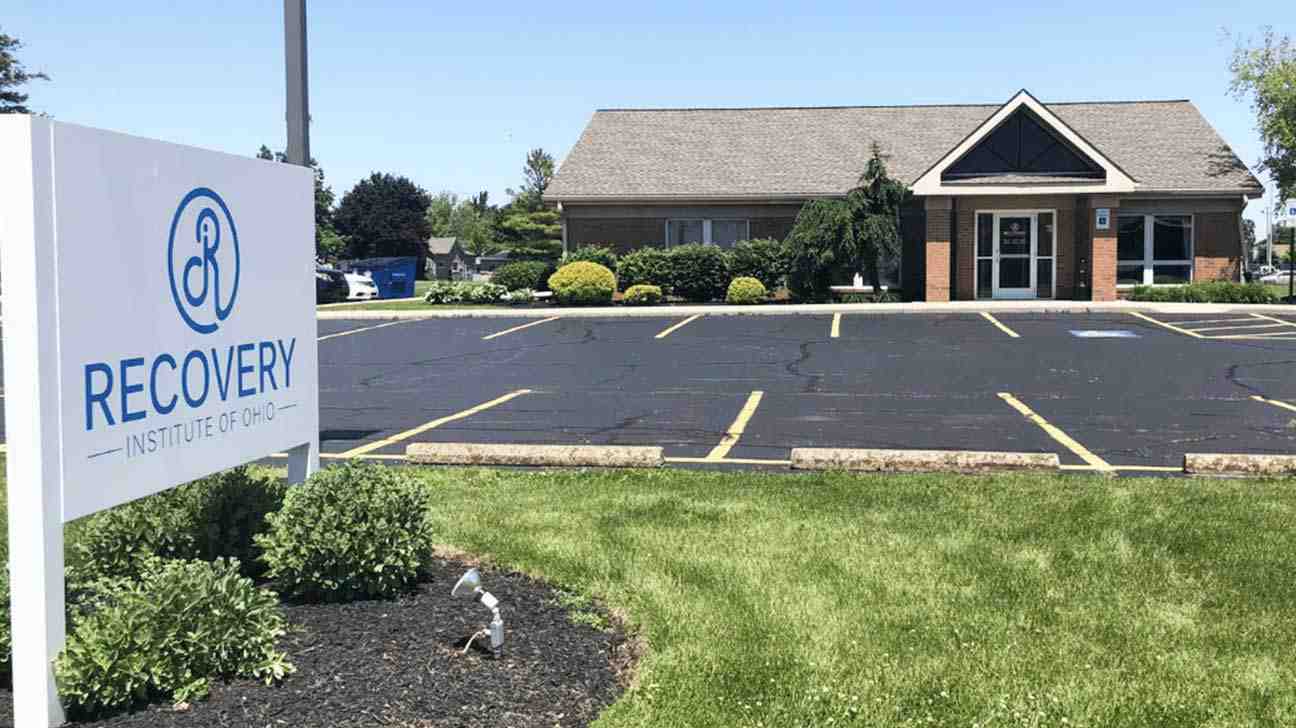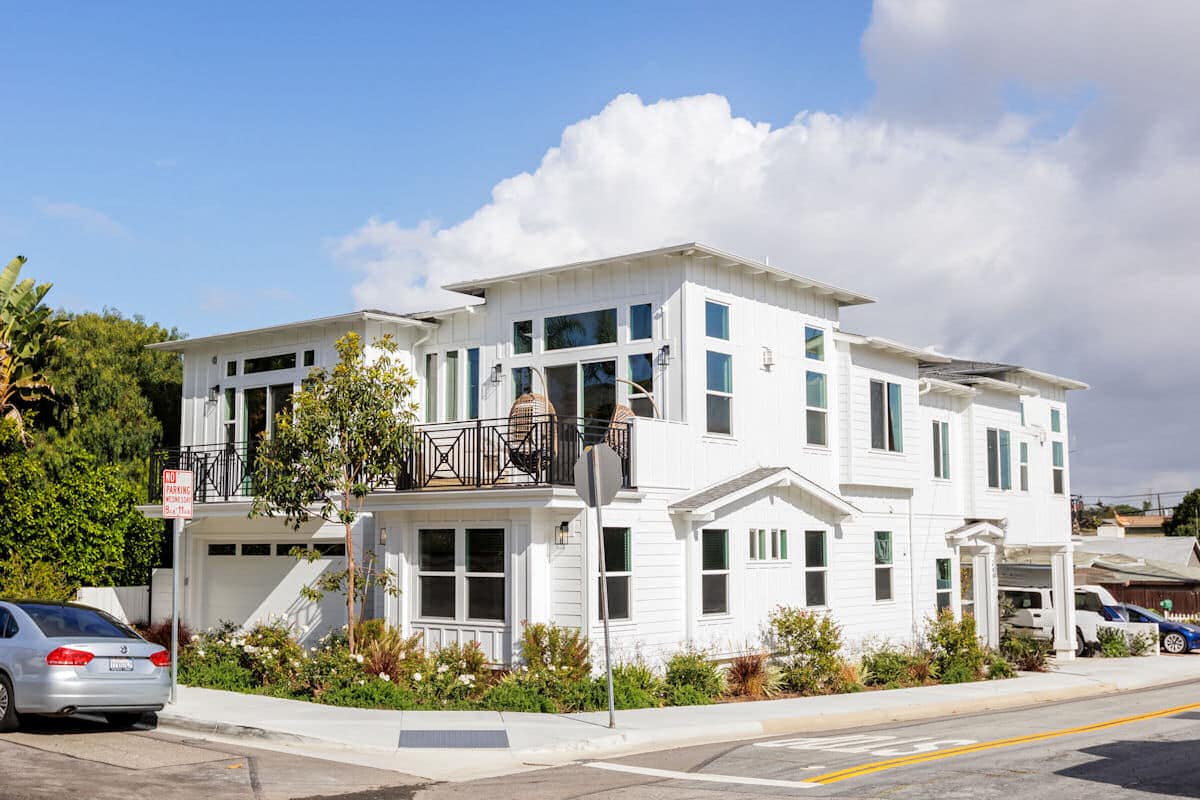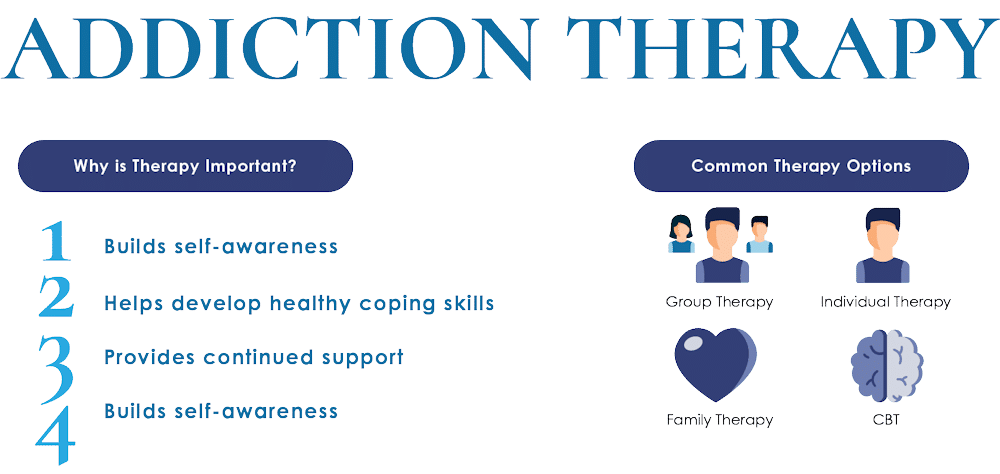
Understanding Therapy for Addiction: Your Path to Recovery Starts Here
Therapy for addiction is a proven, evidence-based approach that helps individuals overcome substance use disorders through counseling, behavioral interventions, and structured support. Here’s what you need to know:
Quick Answer: Types of Therapy for Addiction
- Cognitive Behavioral Therapy (CBT) – Helps identify triggers and change thought patterns
- Dialectical Behavior Therapy (DBT) – Teaches emotional regulation and distress tolerance
- Motivational Interviewing (MI) – Builds internal motivation to change
- Contingency Management (CM) – Uses rewards to reinforce abstinence
- Family Therapy – Heals relationships and improves communication
- Group Therapy – Provides peer support and shared experiences
- Medication-Assisted Treatment (MAT) – Combines therapy with FDA-approved medications
Addiction, a chronic brain disease, affects over 19 million Americans over 18. It rewires the brain, making it incredibly difficult to stop using substances, but addiction is treatable, and recovery is absolutely possible.
Decades of research prove therapy works. It helps you understand your substance use, identify triggers, develop coping skills, and build a life free from drugs or alcohol. Professional treatment offers real hope.
Treatment isn’t one-size-fits-all. The best programs combine approaches like inpatient or outpatient care, medication support, and behavioral therapies, custom to your unique needs.
At Addiction Helpline America, we help people steer the journey to recovery. We connect you with evidence-based therapy options that match your specific needs, providing confidential guidance and support.
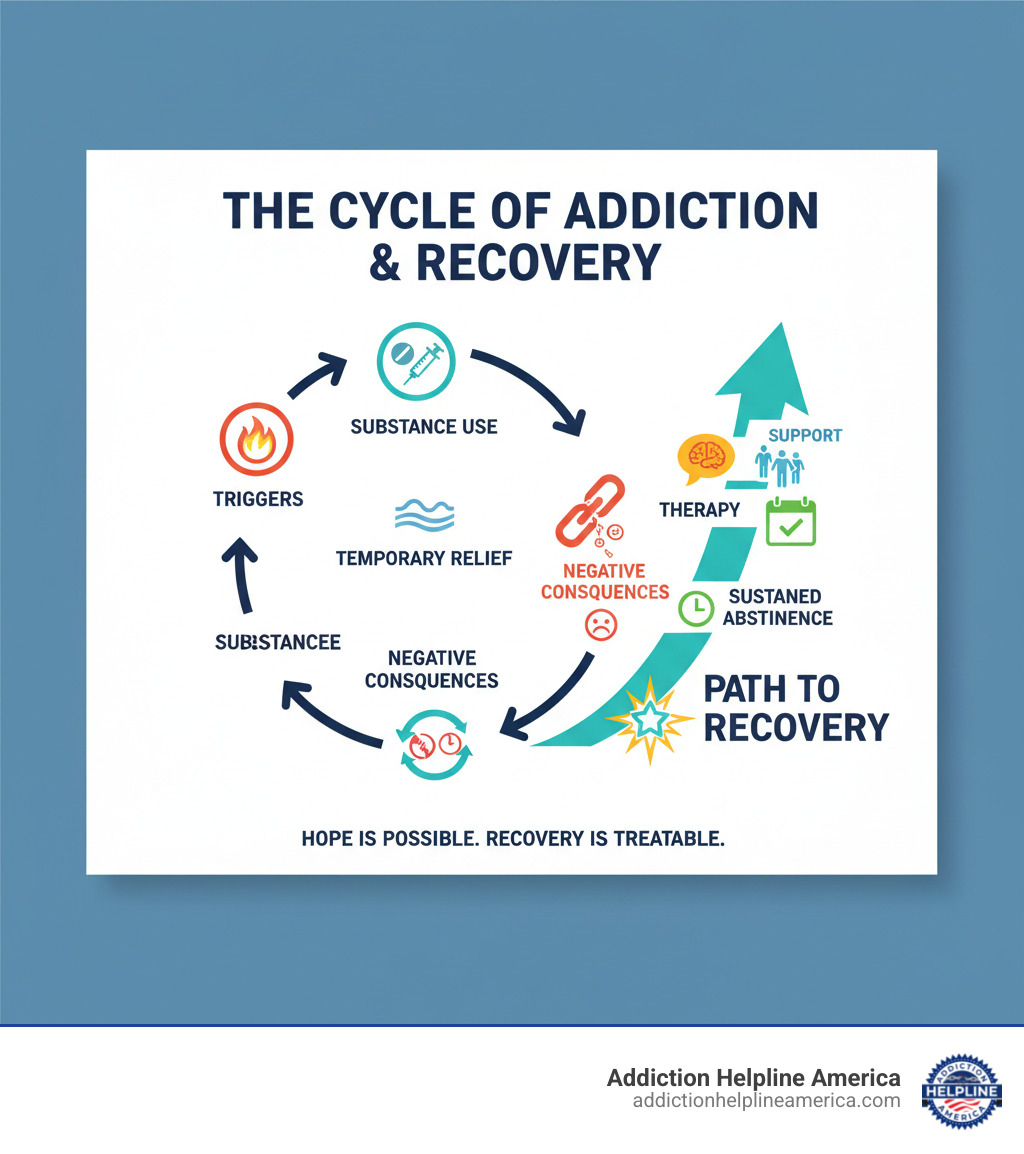
Similar topics to therapy for addiction:
Understanding Addiction and the Role of Therapy
Addiction isn’t a moral failing; Substance use disorder (SUD) is a chronic brain disease. Long-term substance abuse physically changes the brain’s reward, motivation, and memory circuits. These changes can persist long after use stops, which is why professional help is so critical. The costs are staggering, with over 92,000 people dying from illicit drug overdoses in 2020 alone.
Therapy for addiction aims to change these outcomes. Its goals are to help you achieve abstinence, address the underlying causes of your substance use, and build healthy coping skills for a fulfilling life in recovery. Professional treatment provides access to medical and mental health experts who can diagnose and treat co-occurring disorders like depression or anxiety, which often fuel addiction. Through therapy, you learn vital life skills and develop personalized relapse prevention strategies, significantly improving your chances of long-term recovery. For more context, see our guide on drug addiction as a disability.
Call Now – Your Journey to Recovery Begins Today!

Take the first step towards a healthier life! Call now to connect with our compassionate team and start your recovery journey today. Your path to healing awaits!
Our recovery specialists are available 24/7 to provide support, and all calls are confidential and free. Reach out anytime – we’re here to help!
What is Addiction Therapy?
Addiction therapy is a set of evidence-based psychosocial interventions designed to help you overcome SUDs. It goes beyond just “stopping use” to explore the psychological, emotional, and behavioral patterns that fuel addiction. The goals are to stop drug and alcohol use, achieve long-term abstinence by addressing root causes, and build supportive relationships.
A key predictor of success is the therapeutic alliance—the trusting, collaborative relationship between you and your therapist. Feeling safe and understood makes it easier to do the hard work of change. Since many people with SUDs also have co-occurring mental health conditions like depression or PTSD, effective treatment addresses both issues simultaneously through integrated care. For more on this, visit our page on best mental health treatment near me.
Why a One-Size-Fits-All Approach Fails
Your path into addiction is unique, so your path out must be too. Generic treatment programs often fail because they ignore the complex factors influencing your recovery. Effective therapy for addiction must be customized to you.
Quality treatment programs create a comprehensive strategy by considering:
- Substance Type and Severity: Opioid, alcohol, and stimulant addictions present different challenges and require specialized protocols.
- Personal History: Factors like trauma, family history, and your support system shape your treatment needs.
- Co-occurring Conditions: Untreated mental health issues like depression or anxiety can derail recovery if not addressed alongside addiction.
- Motivation for Change: Your readiness to quit influences which therapeutic approach, such as motivational interviewing, will be most effective initially.
This personalized approach isn’t just a bonus—it’s essential for lasting recovery.
Key Evidence-Based Behavioral Therapies for Addiction
Behavioral therapies are central to effective therapy for addiction. These approaches help you change the thoughts and actions that lead to substance use by teaching you practical, real-world strategies for building a meaningful life in recovery. They help you understand why you use and develop skills to create a life that doesn’t rely on substances.
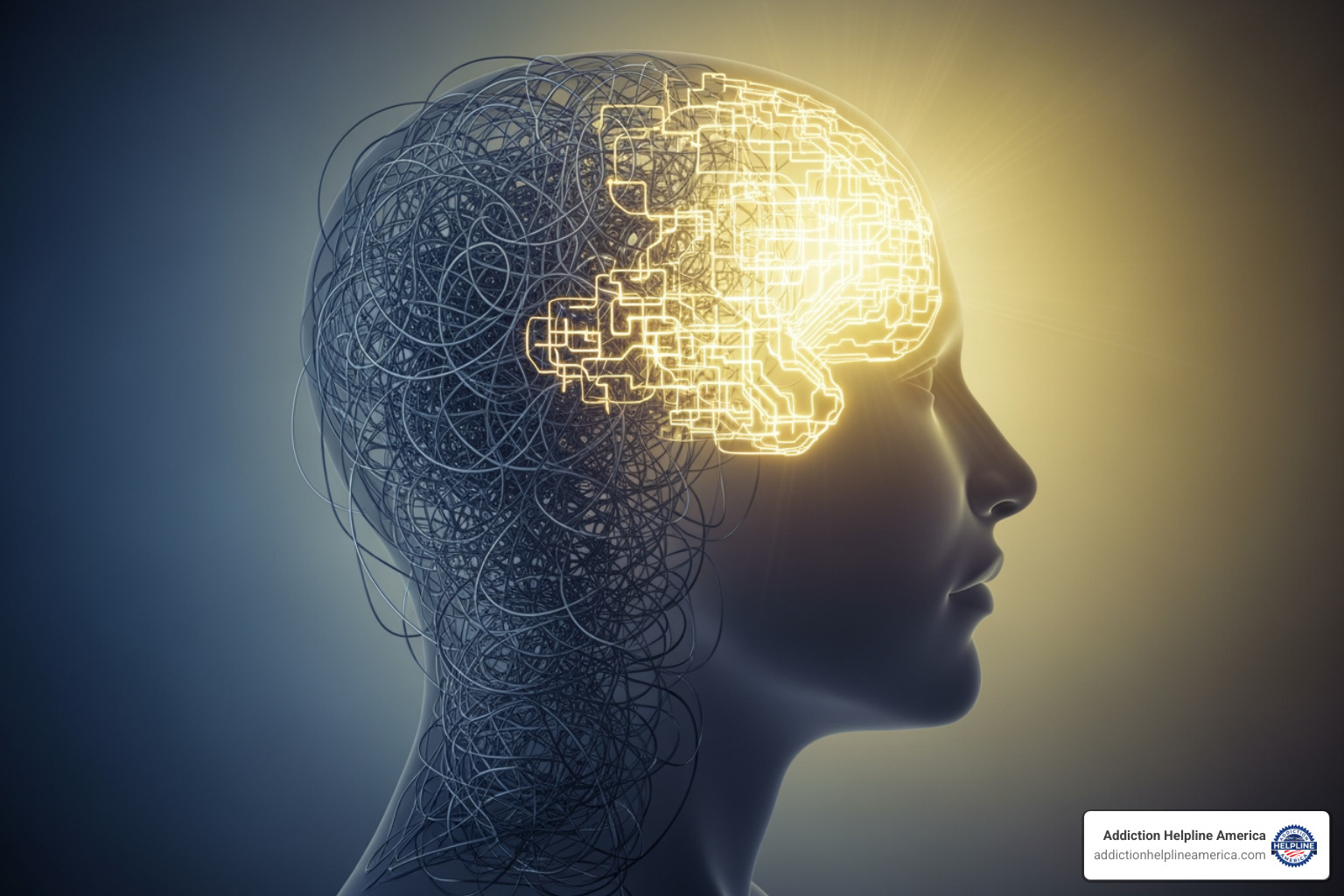
Cognitive Behavioral Therapy (CBT)
Cognitive Behavioral Therapy (CBT) is a cornerstone of addiction treatment. It’s based on the idea that addiction involves learned behaviors that can be unlearned. CBT helps you identify and break the connections between certain situations, thoughts, and substance use. The process involves functional analysis to identify triggers, cognitive restructuring to challenge and change negative thought patterns, and skills training to develop healthier coping mechanisms. Research shows CBT has durable effects, with benefits lasting long after treatment ends because it fundamentally changes how your brain processes triggers and emotions. For more, see this Scientific research on CBT’s durable effects.
Dialectical Behavior Therapy (DBT)
Dialectical Behavior Therapy (DBT) is highly effective for people who struggle with intense emotions alongside addiction. It balances self-acceptance with the need for change. DBT focuses on four core skill areas: emotional regulation to manage feelings without being overwhelmed, distress tolerance to survive crises without using substances, mindfulness to stay present and make conscious choices, and interpersonal effectiveness to build healthier relationships. DBT is especially valuable if you experience intense emotional swings or have co-occurring mental health conditions. If depression is a factor, our Complete Guide Inpatient Centers Depression offers more resources.
Motivational Interviewing (MI)
Motivational Interviewing (MI) is a collaborative therapy style for those who may be ambivalent about quitting. Instead of confronting you, a therapist works with you to explore your own reasons for change. The goal is to improve your internal motivation and build confidence in your ability to succeed. By expressing empathy and highlighting the discrepancy between your current behaviors and your personal goals, MI helps you move through the stages of change at your own pace. It’s a powerful way to build a lasting commitment to recovery. Learn more from this Scientific research on Motivational Interviewing in practice.
Contingency Management (CM)
Contingency Management (CM) uses positive reinforcement to promote abstinence. It fights addiction’s grip on the brain’s reward system by providing tangible rewards, like vouchers or prizes, for meeting recovery goals such as drug-free tests. This straightforward application of operant conditioning helps strengthen new, healthy behaviors. CM is remarkably effective, particularly for stimulant use disorders where medication options are limited. It helps people stay abstinent long enough to experience the natural rewards of recovery, which eventually become the primary motivation for staying clean.
At Addiction Helpline America, we connect you with programs offering a range of these evidence-based therapies, ensuring you find the right combination for your recovery journey.
Building a Comprehensive Treatment Plan
A comprehensive treatment plan is rarely a single approach. Effective therapy for addiction involves an interprofessional healthcare team—including physicians, therapists, and case managers—who coordinate to address your physical, psychological, and social needs. This holistic strategy combines multiple therapies and support systems to give you the best chance at success.

Inpatient vs. Outpatient Therapy for Addiction
Choosing the right level of care is a key decision. Inpatient treatment offers 24/7 supervision in a structured, substance-free environment, allowing you to focus entirely on healing. It’s ideal for severe addiction, co-occurring conditions, or an unstable home environment. Outpatient programs provide flexibility, allowing you to live at home while attending scheduled therapy sessions. This works well for those with less severe addiction and a strong support system. Many people also use outpatient care as a step-down from a residential program.
| Feature | Inpatient/Residential Treatment | Outpatient/IOP/PHP Treatment |
|---|---|---|
| Intensity | High; 24/7 supervision, structured schedule, immersive therapy. | Moderate to Low; Scheduled sessions, allows living at home. |
| Environment | Controlled, supportive, substance-free living environment. | Allows integration with daily life (work, family). |
| Cost | Generally higher due to 24/7 care, accommodation, and meals. | Generally lower, as living expenses are not included. |
| Ideal Candidate | Severe SUD, unstable home environment, co-occurring mental health issues, history of relapse, need for medical detox. | Stable home environment, strong support system, less severe SUD, ability to manage daily responsibilities. |
While cost is a factor, choosing the right level of care is the most important investment. For more details, explore our 90 Day Inpatient Rehab Programs Guide and Alcohol Rehab Inpatient Residential Program page.
The Role of Medication-Assisted Treatment (MAT)
Medication-Assisted Treatment (MAT) is a science-backed approach that combines FDA-approved medications with counseling. It isn’t replacing one drug with another; it’s about using medicine to stabilize brain chemistry, reduce cravings, and manage withdrawal symptoms while you do the psychological work of recovery. MAT is highly effective for opioid use disorder (using buprenorphine, methadone, naltrexone) and alcohol use disorder (using naltrexone, acamprosate, disulfiram). Research shows that combining medication with therapy dramatically improves outcomes, helping people stay in treatment longer and maintain abstinence. Learn more about Opioid Addiction Treatment Options.
Call Now – Your Journey to Recovery Begins Today!

Take the first step towards a healthier life! Call now to connect with our compassionate team and start your recovery journey today. Your path to healing awaits!
Our recovery specialists are available 24/7 to provide support, and all calls are confidential and free. Reach out anytime – we’re here to help!
The Importance of Support Systems
No one recovers in a vacuum. Strong support systems are vital. Family therapy helps heal relationships, improve communication, and create healthier dynamics for everyone impacted by addiction. Mutual help groups like Alcoholics Anonymous (AA) and Narcotics Anonymous (NA) provide invaluable peer support from others who share similar experiences. These groups reduce isolation, offer practical coping strategies, and provide a community framework for long-term recovery.
Complementary and Holistic Therapies
Holistic therapies support overall well-being and enrich traditional treatment. These are not replacements for evidence-based care but powerful additions. Practices like yoga and meditation reduce stress and build mindfulness. Art and music therapy offer creative outlets for expressing complex emotions. Equine therapy uses work with horses to teach lessons about trust, communication, and self-esteem. These approaches help you develop new, healthy interests and coping skills. For more on comprehensive wellness, see our Eating Disorder Help resources.
Finding and Accessing Addiction Therapy
Reaching out for help can feel overwhelming, but accessing therapy for addiction is more straightforward than you might think. Resources are available right now to guide you through the process.

How to Find Professional Therapy for Addiction
Addiction Helpline America simplifies the process of finding help. Our admissions navigators offer free, confidential guidance to connect you with a treatment program that fits your unique needs. We take the time to understand your situation and explain your options.
Other key resources include:
- The SAMHSA National Helpline at 1-800-662-HELP (4357) for free, 24/7 treatment referrals.
- The 988 Suicide & Crisis Lifeline for immediate support by calling or texting 988.
- FindTreatment.gov, SAMHSA’s online treatment locator.
- Your primary care physician, who can provide referrals to local specialists.
For a complete overview, visit our Find Drug Treatment Complete Guide.
Is Addiction Therapy Covered by Insurance?
The good news is that federal laws like the Affordable Care Act (ACA) and the Mental Health Parity and Addiction Equity Act (MHPAEA) mandate that most health insurance plans cover addiction treatment as an essential health benefit. This means your coverage for addiction services should be comparable to that for other medical conditions.
However, every plan is different. It’s important to verify your specific benefits, including deductibles, co-pays, and whether a facility is in-network. We can help you verify your insurance benefits and understand your coverage, so cost doesn’t have to be a barrier to treatment. For specific information on military insurance, see our guide on Tricare Insurance Rehab Coverage.
The Evolution of Treatment: Virtual Psychotherapy
Virtual psychotherapy, or telehealth, has become a powerful and effective option for therapy for addiction. Research, including a 2022 review, shows it is as effective as in-person care for many people, with no significant difference in outcomes.
Telehealth breaks down major barriers to care. It offers:
- Accessibility: Brings expert care to rural areas or those with mobility issues.
- Flexibility: Allows you to schedule sessions around work or family responsibilities.
- Privacy: Reduces the stigma some feel about visiting a treatment facility.
While not right for everyone—some need the structure of inpatient care—virtual therapy has opened the door to recovery for thousands.
Frequently Asked Questions about Addiction Therapy
What is the most effective type of therapy for addiction?
There is no single “best” therapy for addiction. The most effective treatment is individualized to your specific needs, considering the substance used, co-occurring conditions, and personal history. A combination of therapies (like CBT, DBT, and MI) is often most successful. Research also shows that the quality of your relationship with your therapist—the “therapeutic alliance”—is one of the strongest predictors of a positive outcome.
How long does addiction therapy take?
Addiction therapy is not a quick fix. Recovery is a lifelong journey, and the timeline is different for everyone. Research suggests a minimum of three months of treatment is needed for significant, lasting change, with many people benefiting from longer care. For some treatments like methadone maintenance, 12 months is the recommended minimum.
Treatment intensity often follows a step-down approach, moving from intensive inpatient care to outpatient programs and eventually to ongoing aftercare like weekly therapy and support groups. The key is to remain engaged in a treatment plan that evolves with your needs.
Can substance use disorder be prevented?
Yes, the risk of substance use disorder can be significantly reduced, though not eliminated entirely. Key prevention strategies focus on building resilience and making informed choices. These include:
- Education: Providing accurate, age-appropriate information about the risks of substance use.
- Healthy Coping Skills: Teaching effective ways to manage stress, anxiety, and other difficult emotions without turning to substances.
- Responsible Medication Use: Following prescription instructions, not sharing medications, and disposing of them safely.
- Early Intervention: Addressing warning signs promptly before a problem escalates.
- Reducing Stigma: Talking about addiction as a treatable health condition encourages people to seek help early and without shame.
If you are concerned about your own substance use or a loved one’s, early intervention is key. Reach out to us at Addiction Helpline America for confidential guidance and support.
Call Now – Your Journey to Recovery Begins Today!

Take the first step towards a healthier life! Call now to connect with our compassionate team and start your recovery journey today. Your path to healing awaits!
Our recovery specialists are available 24/7 to provide support, and all calls are confidential and free. Reach out anytime – we’re here to help!
Conclusion
Understanding your options for therapy for addiction is a crucial first step toward change. If you’ve read this far, you are on the right path.
Here’s what we want you to remember: recovery is absolutely possible. Addiction is a treatable condition. With evidence-based therapies like CBT, medication-assisted treatment, and strong support, people rebuild their lives every day. Therapy addresses not just the substance use, but the underlying thoughts, emotions, and patterns that fuel it.
Taking the first step is hard, and that’s why Addiction Helpline America exists. We provide free, confidential guidance to help you find the right treatment program without judgment. Our admissions navigators connect people across all fifty states and the District of Columbia to centers that match their unique needs, insurance, and circumstances.
You don’t have to figure this out alone. Seeking treatment is a brave act of self-care, not a sign of weakness.
If you or a loved one is struggling with substance use, please don’t wait. Reach out for addiction help today, and let us help you find your path to a healthier, more hopeful future. The life you want is still possible. Let’s take that first step together.
Our helpline is 100%
free & confidential
If you or someone you care about is struggling with drug or alcohol addiction, we can help you explore your recovery options. Don’t face this challenge alone—seek support from us.
Programs
Resources
Will my insurance
cover addiction
treatment?
We're ready to help
Find the best
drug or alcohol treatment
center
Are you or a loved one struggling with addiction? Call today to speak to a treatment expert.








